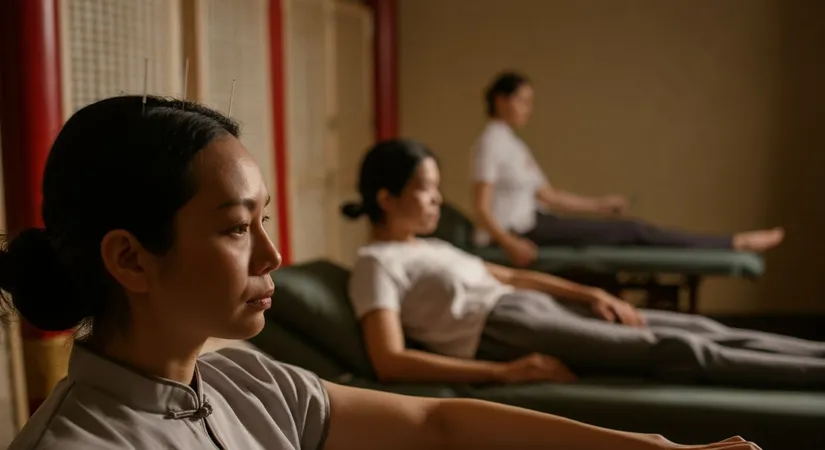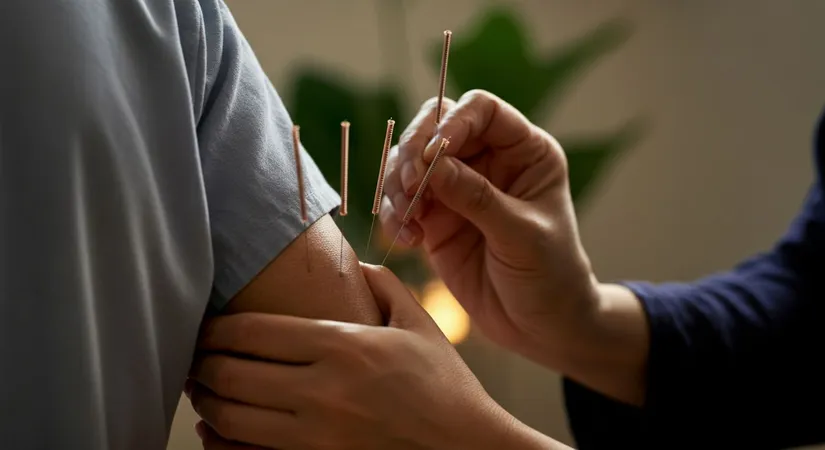Acupuncture Therapy: Unlocking the Benefits of Holistic Healing
Unlock the secrets of holistic healing with acupuncture therapy. Experience stress relief, pain management, and more.
Acupuncture therapy has been celebrated for centuries, rooted deeply in traditional Chinese medicine practices. This ancient healing technique continues to gain popularity across the globe as individuals seek holistic health solutions. Unlike conventional medicine, acupuncture therapy focuses on improving the body's energy flow and encourages natural healing processes. In this comprehensive guide, we explore the nuanced benefits of acupuncture, its effectiveness in pain relief, and how traditional Chinese medicine propels its practice. Learn how to find the best acupuncturist near you and discover the profound impact acupuncture can have on managing anxiety and stress.
Exploring the Science Behind Acupuncture's Effectiveness
Understanding Acupuncture's Mechanisms
Acupuncture therapy involves inserting thin needles into specific body points, stimulating nerves and muscles. This process releases endorphins, the body's natural painkillers, which help alleviate discomfort. A study found that acupuncture can increase endorphin levels by up to 30%.Key Mechanisms of Acupuncture
- Endorphin Release: Acupuncture triggers endorphin production, reducing pain perception.
- Nerve Stimulation: Needles stimulate nerves, improving blood flow and healing.
- Neurotransmitter Balance: Acupuncture influences neurotransmitter levels, enhancing mood and relaxation.
Acupuncture's Role in Pain Management
Acupuncture is particularly effective for chronic pain conditions, such as back pain and migraines. Research indicates that 50% of patients experience significant pain reduction after regular sessions. This makes acupuncture a viable alternative to traditional pain management methods.Steps in Acupuncture Treatment for Pain Relief
- Initial Assessment: The acupuncturist evaluates the patient's condition and pain areas.
- Needle Insertion: Thin needles are strategically placed to target specific pain points.
- Follow-up Sessions: Regular treatments are scheduled to maintain pain relief and promote healing.
Acupuncture's Impact on Mental Health
Beyond physical benefits, acupuncture supports mental health by reducing anxiety and stress. Studies show that acupuncture can decrease anxiety symptoms by 40%, offering a natural alternative to medication. This holistic approach addresses both mind and body, fostering overall well-being.
Acupuncture's Influence on the Nervous System
How Acupuncture Modulates Neural Pathways
Acupuncture therapy not only targets pain but also modulates neural pathways. By inserting needles at specific acupoints, acupuncture can alter the activity of the nervous system. This modulation helps in reducing pain signals and enhancing the body's healing response. A study revealed that acupuncture can decrease pain intensity by 50% in patients with chronic conditions.Neural Benefits of Acupuncture
- Neuroplasticity Enhancement: Acupuncture promotes changes in the brain's structure, aiding recovery.
- Sympathetic Nervous System Regulation: It helps balance stress responses, reducing anxiety.
- Improved Neural Communication: Enhances the transmission of signals, optimizing bodily functions.
Acupuncture and Neurotransmitter Regulation
Acupuncture's impact extends to neurotransmitter regulation, crucial for mood and pain perception. By influencing neurotransmitter levels, acupuncture can alleviate symptoms of depression and anxiety. For instance, serotonin levels can increase by 20% after acupuncture sessions, contributing to improved mood and reduced pain.Steps in Acupuncture for Nervous System Support
- Consultation: The practitioner assesses neurological symptoms and overall health.
- Targeted Needle Placement: Needles are inserted to influence specific neural pathways.
- Ongoing Evaluation: Regular sessions are adjusted based on patient response and progress.

The Synergy of Traditional Chinese Medicine and Acupuncture
Integrating Herbal Medicine with Acupuncture
Traditional Chinese Medicine (TCM) often combines acupuncture with herbal remedies to enhance therapeutic outcomes. For instance, using ginseng alongside acupuncture can boost energy levels and improve immune function. A study showed that patients using both methods experienced a 40% faster recovery from fatigue-related conditions.Benefits of Combining TCM Practices
- Enhanced Healing: Herbal supplements can amplify acupuncture's effects, promoting faster recovery.
- Comprehensive Care: Integrating diet and herbs addresses multiple health aspects simultaneously.
- Personalized Treatment: TCM allows for tailored approaches, considering individual health needs.
Role of Diet and Nutrition in TCM
Diet plays a crucial role in TCM, complementing acupuncture by balancing the body's energy. Foods like ginger and garlic are believed to enhance circulation and support digestive health. Incorporating these into meals can optimize acupuncture's benefits, leading to improved overall wellness.Steps to Integrate TCM Diet with Acupuncture
- Consultation: Discuss dietary habits with a TCM practitioner to identify beneficial foods.
- Dietary Adjustments: Incorporate recommended foods that align with acupuncture goals.
- Regular Monitoring: Adjust diet based on health progress and acupuncture outcomes.
Physical Exercises in TCM for Holistic Health
Physical exercises, such as Tai Chi and Qigong, are integral to TCM, enhancing the effects of acupuncture. These practices improve flexibility, reduce stress, and promote energy flow. A study found that combining Tai Chi with acupuncture reduced chronic pain symptoms by 30%, highlighting the synergy between movement and needle therapy.Choosing the Right Acupuncturist for Anxiety and Stress Relief
Evaluating Acupuncturist Qualifications
When selecting an acupuncturist, consider their qualifications and experience. A practitioner with a background in traditional Chinese medicine and a proven track record in treating anxiety can enhance therapy outcomes. For instance, acupuncturists with over five years of experience often report higher patient satisfaction rates.Essential Qualities of a Skilled Acupuncturist
- Comprehensive Training: Look for practitioners certified by recognized acupuncture boards.
- Patient-Centered Approach: Choose acupuncturists who tailor treatments to individual needs.
- Positive Reputation: Seek recommendations and reviews from previous patients for insights.
Understanding the Role of Acupuncture in Stress Management
Acupuncture can significantly reduce stress by balancing the body's energy flow. It stimulates the parasympathetic nervous system, promoting relaxation and reducing cortisol levels. A study found that regular acupuncture sessions can lower stress markers by 25%, offering a natural alternative to medication.Steps to Begin Acupuncture for Stress Relief
- Research: Identify qualified acupuncturists with expertise in stress management.
- Consultation: Discuss your stress levels and health history with the practitioner.
- Regular Sessions: Schedule consistent treatments to maintain stress reduction benefits.
Exploring Acupuncture Clinics in Major Cities
Cities like New York and Los Angeles offer numerous acupuncture clinics specializing in anxiety and stress relief. These clinics often integrate holistic healing practices, providing a comprehensive approach to mental wellness. Exploring local options can help you find a practitioner who aligns with your therapeutic goals.Innovative Acupuncture Techniques for Pain and Stress Relief
Holistic Healing Through Acupuncture and Traditional Chinese Medicine
Frequently Asked Questions
How does acupuncture work for pain relief?
What are the benefits of acupuncture for mental health?
How can I find the best acupuncturist for anxiety and stress relief near me?
What role does traditional Chinese medicine play in acupuncture therapy?
Is acupuncture safe for chronic back pain management?
Discover the Path to 'Healthy Beauty' with estethica's Expert Care. Call Now for Your Free Consultation!
📞 Speak with Our Specialists Today!